Ask an Expert
Planning the right solution requires an understanding of your project's security goals. Let Kingston's experts guide you.
Ask an Expert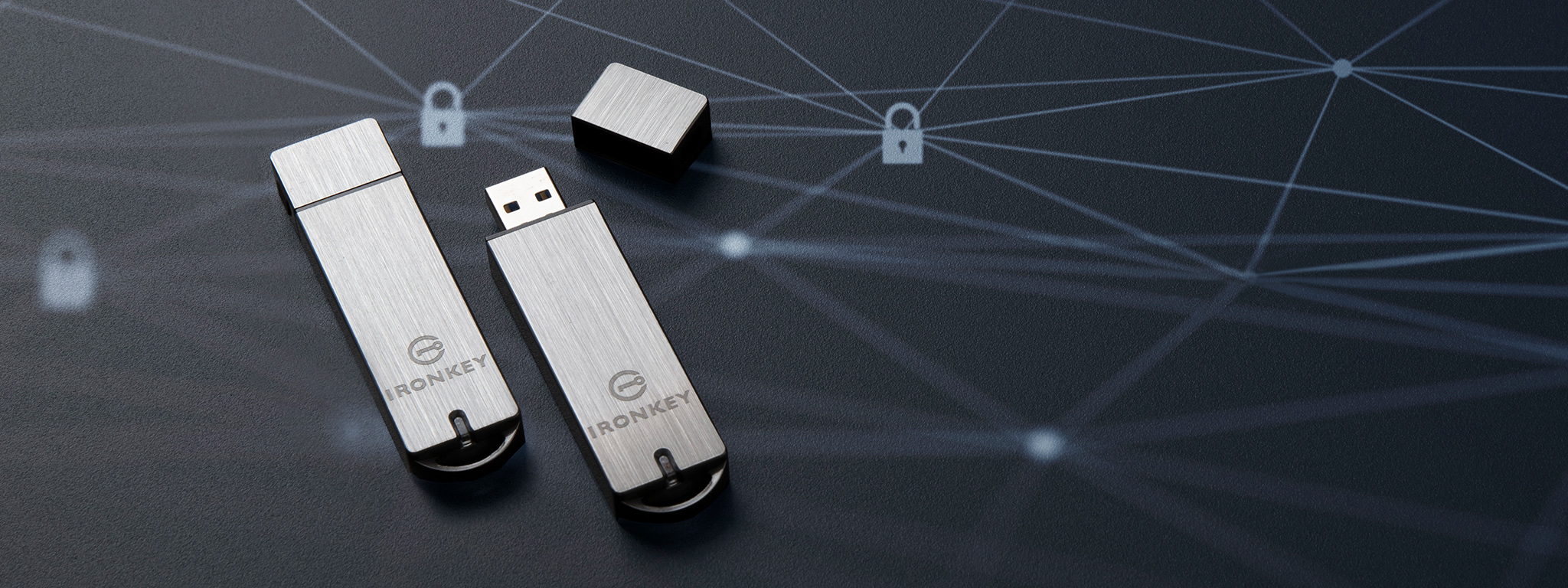
Tips to help your organization keep confidential information confidential and comply with regulations such as the EU’s GDPR and New York’s NYDFS.
If you don’t have a plan in place for encrypted USBs or external drives and guidelines for their usage, you have nothing to build on and your organization is at risk at every level– including failure to comply with regulations. Data loss and data breaches have only grown more expensive for companies as threat actors’ efforts have grown more sophisticated. A cybersecurity study in 2021 found that the average cost of a data breach globally was US$4.24 million. That was a 10% increase over the cost in 2020. Avoid facing these costs by devising and sticking to a practical plan for data security, one which avoids BadUSB attacks by using only approved, encrypted USBs or external drives.
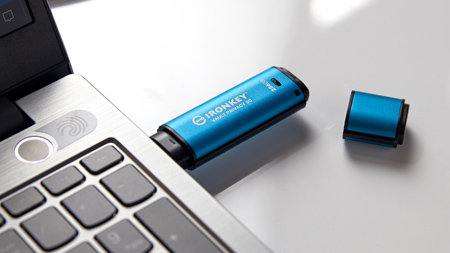
Select the correct USB Flash drive to fit your organization’s needs. Recommended actions would be to:
Without the appropriate research, your initiatives may be more challenging to implement and difficult to justify. Simple analysis of what your organization needs and knowing there’s a range of easy-to-use, cost-effective, encrypted USB or external drive solutions can go a long way toward enabling both your organization and your end users to get a handle on the issue, thereby managing risks and reducing costs.
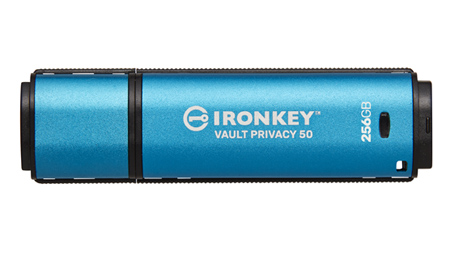
Establish a training program that educates employees on acceptable and unacceptable use of USB Flash and external drives and Bring Your Own Device (BYOD) policies.
If you don’t train and educate end users on the risks, you don’t have a tightly sealed data leak prevention strategy, and you’ll leave yourself prone to breaches. A Ponemon USB security study found that 72% of employees use free Flash drives from conferences, trade shows, business meetings, etc.– even in organizations offering ‘approved’ USB options.
Institute policies for the proper use of electronic portable storage media, including USB Flash drives. Start by:
If you don’t have the right policies in place for all to follow, USB and external drives can potentially be the downfall of your data security strategy. Setting a policy is the first step, and a highly important one. The Ponemon study also found that nearly 50% of organizations confirmed that they had lost devices carrying sensitive or confidential information in the 24 months prior to being surveyed.
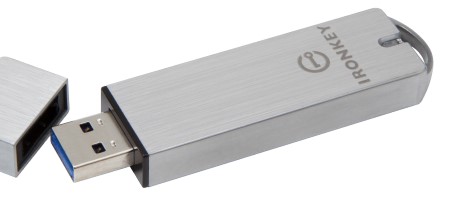
Provide employees with approved, encrypted USB Flash drives for use in the workplace. Approved Flash drives should have the following features:
If you don’t provide encrypted USBs and implement policies that allow end users to be productive, employees will, out of necessity, usually find a way to circumvent these security systems.
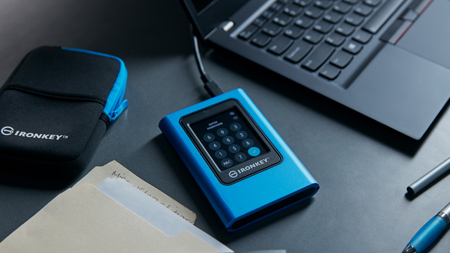
To ensure that your data is safe, it should be encrypted before being sent out via email or saved on removable storage devices.
For organizations in which confidential or sensitive data is part of your business such as financial, healthcare, government, etc. encryption is the most trustworthy means of protection. Following these principles will offer a measure of protection against penalties and/or lawsuits related to data loss disclosures following new regulations.
If you don’t encrypt data before it’s saved on USB or external drives, hackers can bypass your antivirus, firewall, or other controls. That data is vulnerable. The Kingston IronKey™ S1000 Encrypted USB Flash drive features an on-device Cryptochip, providing a best-in-class and ultimate layer of hardware security.
The Kingston IronKey Vault Privacy 80ES is an external SSD with always-on hardware-encryption that is FIPS 197 certified. It comes with an innovative touch screen to enter a PIN or a Password up to 64-characters. It provides high-capacity storage with reliable, trustworthy encryption protection.
Kingston IronKey encrypted drives offer high levels of data protection and have been used by individuals, small and medium businesses and enterprises as well as government customers for decades. Kingston IronKey drives are trusted solutions worldwide for data protection.
#KingstonIsWithYou #KingstonIronKey

Planning the right solution requires an understanding of your project's security goals. Let Kingston's experts guide you.
Ask an Expert